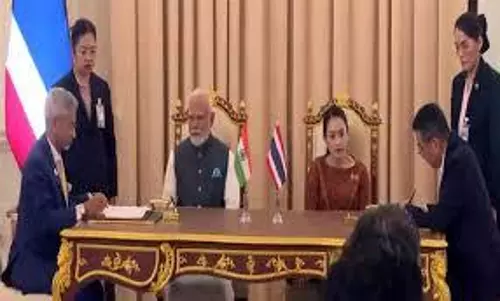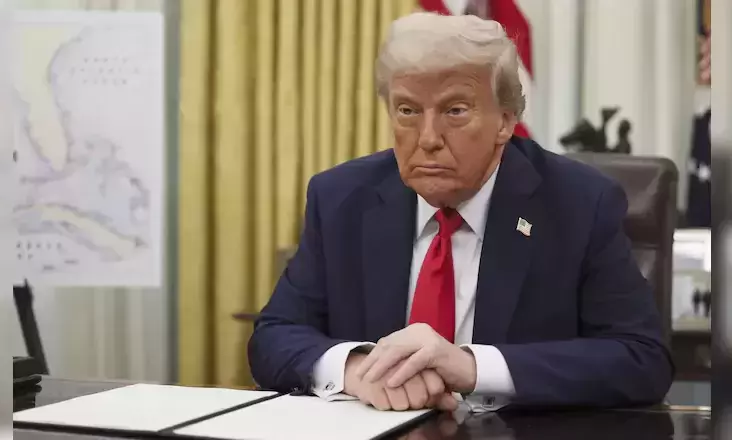
'Reckless': Indian-American lawmakers slam Trump tariff
text_fieldsNew York: Indian-American members of the US Congress and the diaspora community criticised the reciprocal tariffs imposed by President Donald Trump, calling them "reckless and self-destructive”, urging leaders in both countries to engage in dialogue to address these challenges.
Trump has imposed a 26% "discounted reciprocal tariff" on India, citing the country's 52% tariffs on American goods.
Lawmakers warn that Trump's tariffs will make Indian goods less competitive. Congressman Raja Krishnamoorthi strongly criticised the move, saying Trump's blanket tariffs essentially tax working families to fund tax cuts for the wealthiest Americans. He says the tariffs will burden seniors and working families with higher prices without strengthening the economy or national security. He's urging Americans to push Trump to end these "disastrous" policies before they trigger a recession.
Meanwhile, Congressman Ro Khanna is equally critical. He emphasises that these tariffs were imposed without strategy, consultation, or congressional input.
Khanna says that the prices for everyday items like groceries, cars, and even home repairs and building materials are expected to rise. Additionally, businesses are hesitant to invest due to the unpredictable economic climate, which can impact job security and growth. The stock market has also taken a hit, affecting investments and retirement savings. Experts even warn of a potential recession and stagflation, characterised by slow economic growth and higher inflation, all due to Trump's economic policies, which Khanna describes as "incoherent" and "incompetent".
Indian-American Congressman Dr Ami Bera slammed President Trump's tariffs, stating that they won't make America wealthy again but instead pass costs on to American consumers, effectively hiking taxes .
Former Biden advisor Ajay Bhutoria warned that Trump's sweeping policy will severely impact Indian industries, making goods like textiles and pharmaceuticals less competitive. This move is expected to lead to declining export volumes and financial strain, threatening millions of livelihoods and potentially weakening the strong US-India economic partnership.
Bhutoria also highlighted the burden on American households, who will face rising prices for everyday essentials.
Asia Society Policy Institute Vice President Wendy Cutler warned that President Trump's reciprocal tariffs will have far-reaching consequences, including disrupting global supply chains and injecting market uncertainty. This move may prompt countries like Japan, South Korea, and India to explore alternative markets or countermeasures.
Cutler emphasised that the reciprocal tariff rates will be a shock to US trading partners and harm the American economy, leading to higher prices, slower economic growth, and reduced business investment. She urged leaders to engage in dialogue to address these challenges, minimise the burden on consumers and producers, and preserve the collaboration that drives innovation and prosperity between nations.
According to Wendy Cutler, the US is treating its close partners similarly to its rivals, with Taiwan's reciprocal tariff rate being only slightly lower than China's. This move is particularly puzzling given Taiwan's open economy and significant manufacturing investments in the US.
The US can expect foreign delegations to seek exceptions and potential legal challenges to the tariffs under the International Emergency Economic Powers Act (IEEPA) of 1977. Cutler emphasised that US partners will view these actions as unfavourable and may face domestic pressure to respond.
(inputs from PTI)























